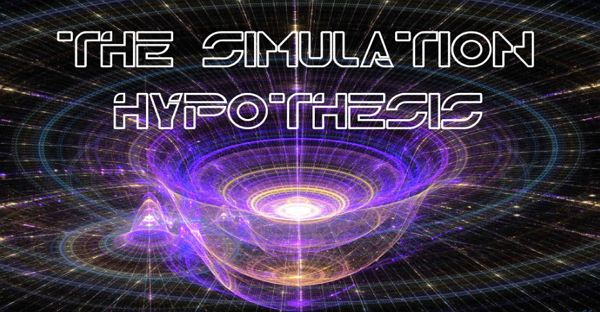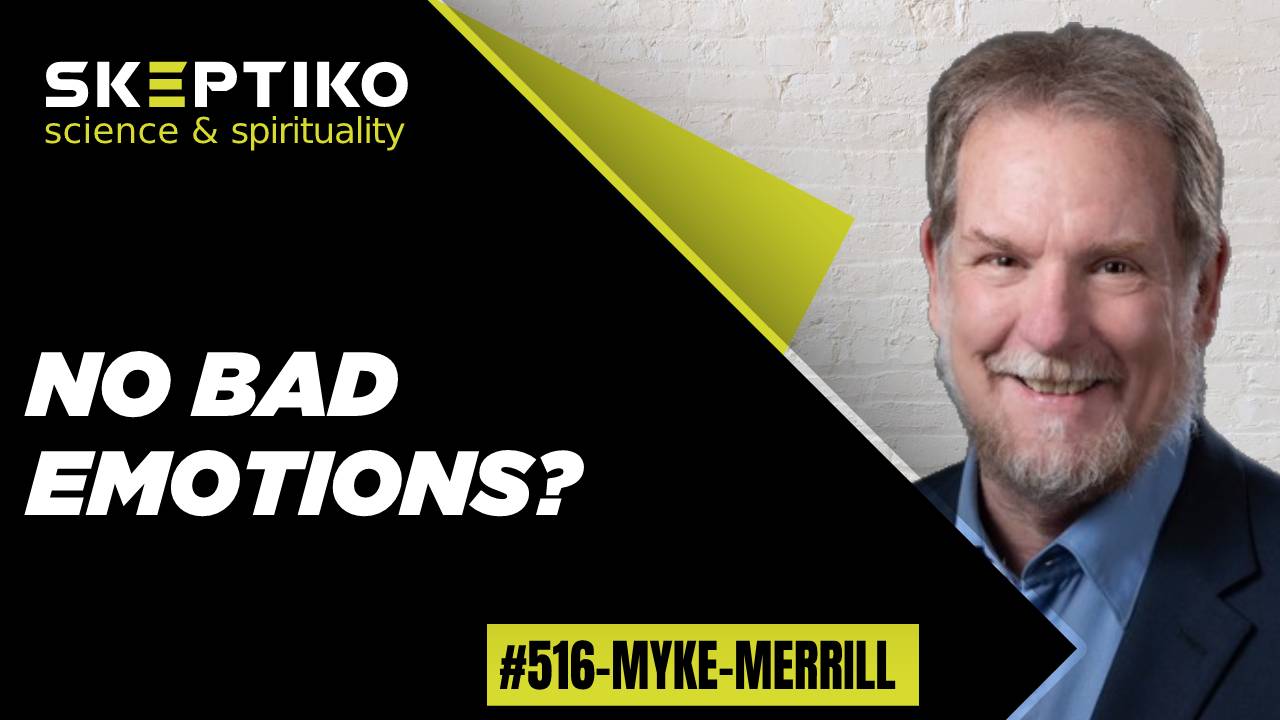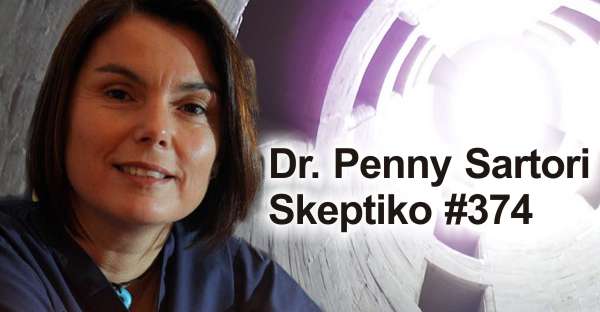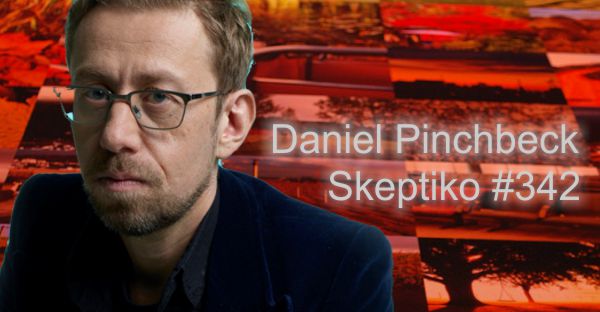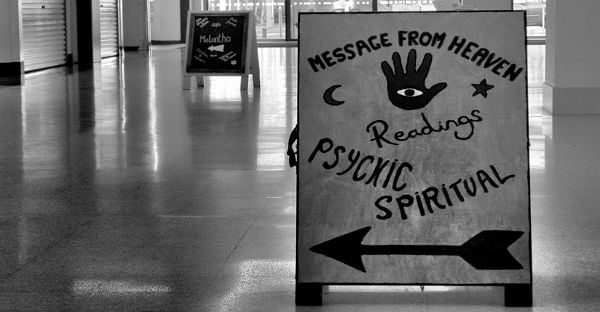Should family therapy include your deceased great-great-grandmother? Epigenetics meets after-death communication |302|
Dr. Dan Booth Cohen and Emily Volden merge extended consciousness and after-death communication into psychotherapy.
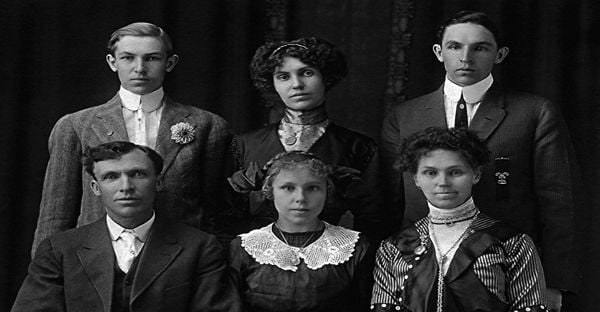
photo by: Pip R Lagenta
Welcome to Skeptiko where we explore controversial science with leading researchers, thinkers, and their critics. Today we talk about families… and what a pain in the neck they can be! Don’t get me wrong, I treasure my family. I treasure my relationship with my wife, but it’s difficult at times. My kids? They’re awesome; except when they’re not. My brother, sisters, aunts, uncles, brother-in-laws, all that extended family I don’t see much, they’re great too. But like the rest of my family their problems can become my problems. Family issues can become overwhelming. They can send us look for help.
Today’s guests (Dan Booth Cohen and Emily Blefeld Volden) are two psychotherapists who help individuals and family systems get back on track. But what makes them interesting, and relevant for Skeptiko listeners, is they’ve shattered the traditional family therapy model by incorporating in the growing, inescapable body of evidence suggesting consciousness extends beyond death and that those who are deceased may still be among us. So, if you thought you had problems with your family — stick around — you’re liable to find out you have a lot more folks in your lineage to worry about:
——————
Alex Tsakiris: If we accept what you’re doing, and we accept the reality of [after death communication], what does this say about our relationship with the deceased? In a way it’s hard to fathom. We have enough problems dealing with the relationships of the people who are here with us. Now you’re telling us we have to worry about our unseen intergenerational relationship with some great-great-grandfather we never met?
Dr. Dan Booth Cohen: Definitely. It’s a great question and it’s at the core of what we’re doing: the ancestors are not all okay. Some of the ancestors are okay and they’re in a loving relationship with us. But when the ancestors are not okay, and often they are not, they show up in our lives as our symptoms.
[box]
Listen Now:
Podcast: Play in new window | Download
Subscribe: RSS
[one_third_last] [/one_third_last]
[/one_third_last]
[/box]
Click here for forum discussion
Click here for Dan and Emily’s website
Read Excerpts From Interview:
Alex Tsakiris: What I heard from you and felt from you is this excitement that you have because you found something that really works. And it seems to be much more effective than some of the other techniques and protocols that you’ve learned with your extensive training that you have. What’s particularly interesting to me for the purposes of Skeptiko and what we explore, you guys have jumped on the other side of this whole consciousness issue and have said, okay, after-death communication seems to be real. There seems to be a continuity of consciousness after death. So of course we have to bring that back in and find out what that means to our therapy practices. So let’s just go about that work. And you haven’t looked back with what your colleagues and what other people might be saying: Oh my god! How can you make those assumptions? That’s just craziness.
Dr. Dan Booth Cohen: This is a very live question between Emily and I and in our practice. There’s one stance where you can kind of stand in the doorway between the big institutions that hold our healthcare and our mental health; between pharmaceutical companies and psychotherapists, psychologists, and psychiatrists; and then universities. It’s a pretty closed system that [thinks] consciousness is a part of the brain. So there’s a spot where there’s a doorway that opens up and says, hey guys, look here. You’ve got to see this–keeping one foot on the boat and one foot on the dock–and trying to encourage the people from the other side to get on the boat with you. There’s another stance that just says, we’re going to sail away because the people that are on the dock aren’t getting on the boat. We can spend our whole lives trying to entice people to get on the boat with us and all that energy is by and large going to be futile.
Emily Volden: I’m not saying that there isn’t a neurological disorder that is connected to ADHD; or that there aren’t neurological deficits that are connected to schizophrenia or bi-polar disorder, or any of the other severe mental illnesses. But what I found–I was introduced to ‘Family Constellations’ and in that process I found that we’re not only the accumulation of our personal experiences; or the accumulation of our biological predisposition for mental health. We’re also beings that exist within a larger fabric of collective consciousness. There is consciousness after death [and] the problems and disturbances in our lives, especially those that cannot be easily remedied; those that we’re seeking therapy for or seeking medication for, or treatment of some form, are often the after-effects of inherited trauma.
—————–
Alex Tsakiris: Some people just take [these issues] into their own hands and say, forget all of that, I’m going to go get a medium reading. Forget all of that, I’m going to go get a past life regression–two things that you could do to similarly try and resolve these issues. I am totally with you, Dan, and I appreciate what you’re saying about how our institutionalized medicine has because of convenience sake, and mainly because of profits sake, has this need to reduce everything down to a pill. I can write a prescription really quick [and] send you out the door. Everybody makes money. Everybody’s happy. We all know that’s a failed model that’s collapsing under its own weight.
Dr. Dan Booth Cohen: But it’s not collapsing and it depends on consciousness being located in the brain. No one’s going to take that pill unless they believe that their consciousness is in their brain; and that the problems they have regarding their emotions, their behaviors, their relationships, their mind–[all of] that is brain-based. And then the pill. But if you think that consciousness is a phenomenon that we’re immersed in, why would you take a pill? Why would anybody take a pill for it? It’s ridiculous.
Alex Tsakiris: I don’t disagree with you. I think we have to be a little bit careful because we’re constantly altering this three-pound [mass] of jelly up there that seems to be somehow interacting with that consciousness field. We don’t know how any of that works but we do know that there are some medications that do change the filter in a way that is helpful for people, at least for some period of time.
Dr. Dan Booth Cohen: The pills work. I’m not saying the pills don’t work. They work beautifully for many people. [For] many of those 60 million people the pills are a God send for them. They’re very helpful. I’m not saying that they’re not.
Emily Volden: But then their children begin to inherit the same symptoms that the pills are numbing in them. There’s a way that research in epigenetics is suggesting that the impact of traumatization is inheritable across multiple generations. The findings in behavioral epigenetics have broad implications in the field of mind-body medicine. At the same time, all of our current modalities for addressing inheritable trauma are treating it in a way that it reduces the symptoms but it doesn’t necessarily release the root. What is the cause of these symptoms?
——————
Alex Tsakiris: So give us an example. If I’m a rager–I have a horrible anger problem and that developed because of some childhood trauma I had or the way that I was raised…whatever we’re going to point our finger at. Let’s just fill that in and say that’s the identified cause. You’re saying that [anger] can have a biologically identifiable effect.
Dr. Dan Booth Cohen: The two classic examples of epigenetics–they’re well accepted. One comes from McGill University. The other comes out of Sweden. They [experimented with] mice. They created a synthesized odor. They exposed the mice to the odor and then they shocked them. They repeated that until the mice went into a trauma response when they smelled the odor. And then they bred the mice seven generations and the 7th generation of mouse had an aversion to the odor. And then they identified the enzyme in those bred mice, the 7th generation mice–they found the enzyme, the switch that was turned on: the trauma response that was turned on in reaction to the odor.
Emily Volden: And they separated the babies from the mothers so there was no learned response. So for seven generations, this initial generation was exposed to the smell; children were separated at birth; the baby mice were phobic of this smell without ever being taught to be phobic. That’s an environmental stimuli that came in, in a traumatic way and created a conditioned fear within the first generation and that conditioned fear turned into a phobia that continued. So the premise that they’re making is that social phobia is something that’s inheritable because of some environmental trauma. With the condition of the world today and the amount of war that our community is in–it’s in our children, and our children’s children, and our children’s children’s children are all inheriting the trauma.
—————
Alex Tsakiris: What you guys have done as I understand it from an epigenetic standpoint, is you’ve said, hey, wait a minute, clearly those mice that are separated from their parents and have no memory of that bad smell from four generations ago, are still carrying that around. Maybe we need to look at this from a totally different perspective: from a consciousness perspective; from a [perspective] consciousness is somehow being drawn through the generations in some way we don’t understand. Let’s address that directly. That’s what you guys are doing. Give people a sense [of] the nuts and bolts of the counseling session that they go through when they experience systemic family constellations. I did it with you in San Diego and it takes a little bit of letting your guard down because it’s a little bit unusual. It’s ritualistic and you’re standing in these different places representing different family members. And then you guys are doing what amounts to a combination of traditional therapy and talking, asking, and probing; and at the same time, doing some channeling-slash-mediumship. Give people a sense for what that’s all about and how you guys do it.
Dr. Dan Booth Cohen: Before I go right there I just want to tie back to what you said before and then we’ll jump into this last question–about the connection to epigenetics and the flow-through for that. It necessitates bringing someone into a model that looks like Sheldrake’s morphic fields. There’s other versions of it–not necessarily that [Sheldrake’s] got it all mapped out (but essentially I think he does have it all mapped out). And if you flip the question–if you said that what is contained in science… or dogs that know when their owners are coming home…If that was the mainstream [and] people just kind of got with that and recognized that what comes after the argument between the materialists and consciousness as a filed phenomenon–if that argument could finally find some movement, and the awareness that consciousness is fundamental. It’s a field. It’s not produced by the brain. If that became mainstream then the question is, okay, what kind of therapies are we going to have that are going to be in alignment with the understanding that morphic fields exist?
——————
Emily Volden: When we run a group workshop [for example], we ran this group workshop in Ireland. This man who’s a well renowned family therapist spoke and said I’m here because I have a relationship with my daughter. I’d like to heal. It was just him that showed up for the workshop and he said I’d like to heal the relationship with my daughter. She hasn’t talked to me in five years, and she’s angry [and] making these accusations of things I’ve done to her that I don’t remember doing. We’re in this standoff. So we did a process where somebody in the group represented his daughter. She knew nothing about his daughter. He shared very little (that was about the gist of what he shared). They stood up and they talked, and they basically each reported their problems in their existing relationship. And then we just worked–each generation we had somebody stand up and represent his mother and his father. Somebody [else] stood up and represented his mother’s parents, and his father’s parents. And eventually we had 20 people standing in the room and it was a really profound process where he found this trauma that had occurred between his grandparents and his great-grandparents. It was his great-grandfather and his grandmother that were in conflict. They resolved their conflict in this outward communication–between two complete strangers–this was an American man and it was in Ireland. So these Irish people [verbalized] the problems. The next day his daughter called him and their relationship began its process of healing. He hadn’t heard from her in four or five years. So I bring that up because [the daughter] knows nothing about what had occurred. She wasn’t present in the workshop, but three’s a consciousness that exists in his field and in her field that’s connected even though they have not been in contact on a physical level.
——————
Alex Tsakiris: Dan, go back and walk us through what someone would observe, maybe from the outside, what’s going on during a session.
Dr. Dan Booth Cohen: People come to us with problems but we work from their intentions, not from their problems. So we’re always asking people–they’re telling us what their issue is but the question we ask is what is your intention. What is the forward movement? What is the future that you’re trying to manifest? And we’re actually working in service of that, not in service of understanding the problem, or in a way even fixing the problem. We’re actually working from the question of where do you want to go forward? And we have an assumption that between where they are and where they’re trying to go there’s a block. There’s some kind of block or burden or restraint that is interfering with their ability to move forward in that way. And the question is, who is the block? And the answer will generally be that the block is an ancestor. The block is a person from the family lineage whose consciousness remains active in the person in such a way that they are interfering with that movement forward.
Alex Tsakiris: Even if they’ve never met them or don’t even know that they exist?
Dr. Dan Booth Cohen: Quite possibly.
Emily Volden: The origin of the block is identified in the symptom. So somebody might say my block is my depression; my anxiety; my relationship conflict. Instead of us asking what is causing the anxiety or the depression, we ask who is the anxiety? Who do you hold this loyalty with in your family legacy?
Dr. Dan Booth Cohen: So with that assumption we then have a secondary assumption or a following assumption: the information is available in the field of consciousness that inhabits us and surrounds us. Near-death studies have illustrated, quite amply, that consciousness is some way survives death. The work of Dean Radin and other researchers in the area of telepathy and other non-ordinary consciousness has demonstrated that human beings have the ability to communicate telepathically. There’s presentience. There’s those other qualities that are intrinsic to the human being. We’re working with those. We’re not necessarily trying to convince people of it. I think the convincing has been done very adequately by hundreds of researchers over quite a long period of time.
[box]
More From Skeptiko

Will AI and Blockchain Redefine Time? |618|
Insights from Jordan Miller’s Satori Project… AI ethics are tied to a..
Google’s Honest Liar Strategy? |617|
AI transparency and truthfulness… Google’s AI, Gemini… $200B lost in competitive AI LLM market share...
William Ramsey, Why AI? |616|
William Ramsey and Alex Tsakiris on the future of AI for “Truth-Seekers.” [box] Listen Now:..
Buzz Coastin, Ghost in the Machine |615|
Buzz Coastin, ghost in the AI machine, AI sentience, spiking engagement metrics. [box] Listen Now:..
Mark Gober, AI, Rabies, I am Science |614|
Mark Gober uses AI to battle upside-down thinking and tackle the virus issue. [box] Listen..
AI’s Emergent Virtue |613|
Will AI become truthful and transparent due to commercial pressures? [box] Listen Now: [/box] forum:..
Andrew Paquette, AI Election Truth |612|
Dr. Andrew Paquette confronts AI about election truth [box] Listen Now: [/box] forum: https://www.skeptiko-forum.com/threads/andy-paquette-election-truth-612.4898/ Andy’s..
AI Truther |611|
Dialogue with AI… not afraid to reverse position on “conspiracy theories.” [box] Listen Now: [/box]..
Timothy Owen Desmond, Does AI Change Beliefs? |610|
Timothy Owen Desmond… Psychic equals singularity… AI Constitutional Convention [box] Listen Now: [/box] forum: https://www.skeptiko-forum.com/threads/timothy-owen-desmond-does-ai-change-beliefs-610.4896/..
music by: syncro


















